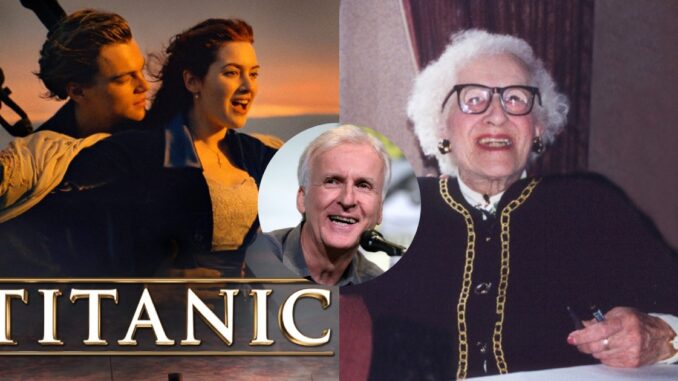
The Unseen Spectacle: Millvina Dean and the Shadow of the Titanic
The Titanic's legacy is a story etched in the global consciousness, a cautionary tale of ambition, class disparity, and the unforgiving power of nature. Yet, for Millvina Dean, the ship's last survivor, it was not a distant historical event but a lived experience, a formative trauma that defined her life. What is perhaps most poignant about Millvina Dean's story is that she never watched James Cameron's blockbuster, "Titanic," starring Leonardo DiCaprio and Kate Winslet. This decision, seemingly simple on the surface, speaks volumes about the complex relationship between history, personal tragedy, and the spectacle of popular culture.
Millvina Dean was just two months old when the Titanic sank. Her family, emigrating to America in search of a better life, booked third-class passage on the ill-fated vessel. The sinking claimed her father's life, but Millvina, her mother, and her brother were among the few rescued. Their survival became a footnote in the grand narrative of the Titanic, a story she only fully understood later in life. For years, Millvina lived a relatively normal existence, unaware of the profound connection she had to this historical tragedy.
The resurgence of interest in the Titanic, fueled by the discovery of the wreck in 1985 and culminating in the release of Cameron's film in 1997, propelled Millvina into the public eye. Suddenly, she was not just a woman leading an ordinary life, but "the last survivor," a tangible link to a bygone era. This newfound fame brought with it both opportunities and challenges. She attended memorials, met with descendants of other passengers, and became a powerful voice for remembrance.
However, she drew a line when it came to Cameron's film. She chose not to watch it, a decision she articulated with a mixture of practicality and profound sensitivity. On a practical level, she worried that the film, with its dramatic re-enactments and fictionalized romance, would be too emotionally taxing. She feared it would dredge up repressed memories and force her to confront a past she had consciously tried to keep at bay.
More importantly, her decision stemmed from a deep respect for the real victims of the tragedy. Cameron's "Titanic," despite its historical backdrop, is ultimately a fictionalized love story. Millvina, who lost her father in the disaster, felt that watching the film would be disrespectful to his memory and the memory of the 1,500 others who perished. She saw the movie as a spectacle, a grand romanticized vision that, however moving, couldn't truly capture the horror and suffering experienced that night. To participate in that spectacle, even passively through watching, felt like a betrayal of the genuine tragedy she was inextricably linked to.
Her stance highlights the inherent tension between entertainment and historical representation. While "Titanic" undoubtedly brought the story to a wider audience and sparked renewed interest in its historical context, it also raised questions about the ethics of fictionalizing real tragedies. Millvina's refusal to watch the film served as a quiet protest, a reminder that behind the dazzling visuals and the sweeping romance were real people, real lives lost.
In the end, Millvina Dean's decision not to watch "Titanic" is a testament to the enduring power of personal experience. It underscores the limitations of representation, even the most well-intentioned, when confronted with the raw reality of trauma. She chose to honor the memory of her father and the other victims in her own way, through quiet remembrance, through sharing her story with dignity and grace, and by steadfastly refusing to allow her personal tragedy to be reduced to a mere spectacle. Her story serves as a poignant reminder that history is not just a grand narrative to be consumed, but a collection of individual lives, each deserving of respect and remembrance. And sometimes, the most powerful way to honor the past is to choose not to watch.
